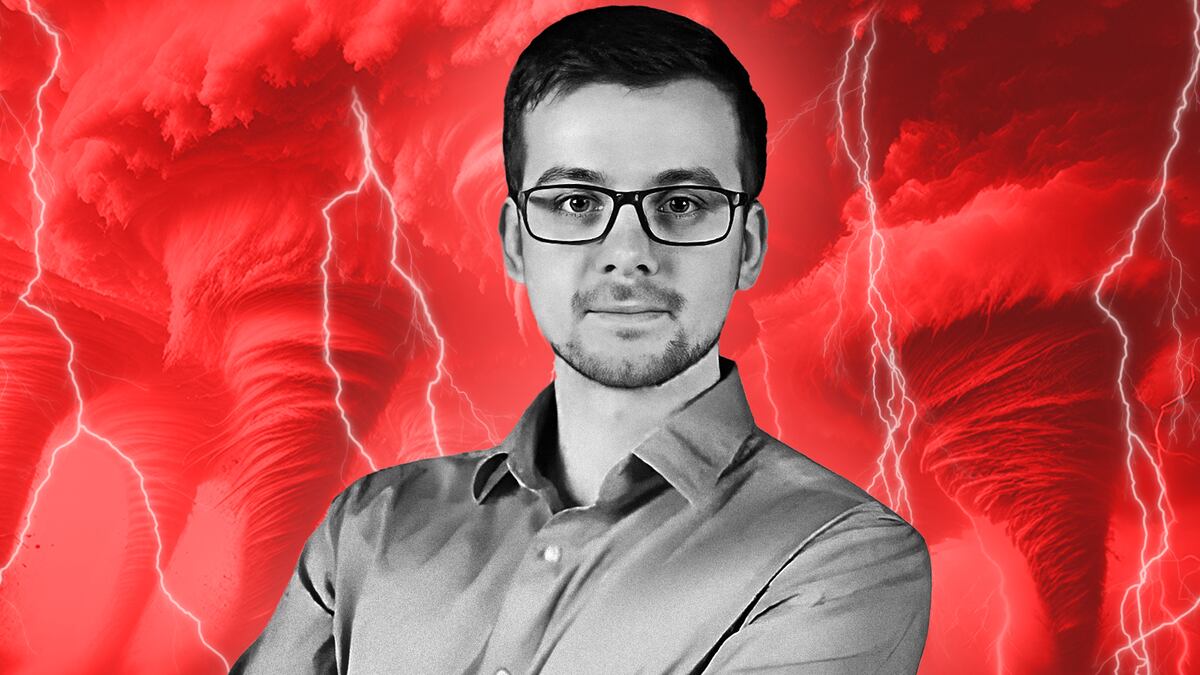- Tornado Cash developer Alexey Pertsev will remain in prison, a Dutch court rules.
- He spent the last two months in prison after he was found guilty of laundering $2.2 billion.
- Pertsev appealed his conviction.
- The court and the prison will not allow Pertsev access to a computer, internet, and data, his lawyer said.
A Dutch court on Friday rejected to release Alexey Pertsev, the Tornado Cash developer convicted of money laundering in May, as he prepares his appeal.
The Court of Appeal of ‘s-Hertogenbosch in the Netherlands ruled Pertsev will continue to be detained, a spokesperson told DL News.
His defence lawyers, Keith Cheng and Judith de Boer, argued that Pertsev would not be a flight risk and that he needs access to a computer and internet to prepare for his appeal trial.
“The court says that continuing his detention does not obstruct his possibility to prepare his defense,” Cheng told DL News.
But the lawyers disagree.
“In a case involving such fundamental legal questions, pre-trial detention is unacceptable,” de Boer said.
“This unprecedented case addresses when a software developer can be criminally liable for third-party misuse,” she added. That’s why Pertsev must be free to await and prepare for the appeal — ”which will benefit the entire legal system.”
Digital facilities rejected
During a hearing last month, Cheng said he presented 18 points of preparation for his appeal where Pertsev would need access to a computer, as required by the court to put through the request.
Still, the request to free Pertsev from detention was rejected, to Cheng’s surprise. He had also filed request earlier to the prison where Pertsev is held, which was also rejected.
“I put a request to the prison warden and asking for the digital facilities, and which includes to have a good computer, unlimited access to internet, the use of specialised software, and to have external data carriers,” Cheng said.
But the computer and facilities could not be granted because it goes against prison safety policy, the defence lawyer said. He presented the prison’s rejection to the court, but with no luck, he said.
For a case that revolves around DeFi technicalities of smart contracts, relayers, and protocol governance, Pertsev is a crucial source of knowledge.
“This kind of preparation cannot be done by a lawyer,” Cheng said. “We need [Pertsev] because he laid down the foundation on the technical aspects of his case and he knows how to explain certain things.”
Cheng previously noted that Pertsev’s detention violates the European Convention on Human Rights describing an individual’s rights to a fair trial.
The verdict
On May 14, a three-judge Dutch court sentenced the 31-year-old Russia national to a 64 month prison term, or more than five years, for laundering $2.2 billion in stolen and hacked crypto through the Tornado Cash crypto mixer.
The judges agreed with the prosecution’s argument that Pertsev and his co-developers failed to prevent criminals, like North Korean hackers Lazarus Group, from laundering illicit proceeds through the platform.
Tornado Cash is an open source protocol that provides privacy to otherwise transparent transaction records on the Ethereum network by obfuscating transaction histories. It runs on automated smart contracts.
Pertsev was arrested in August 2022, days after the US Treasury placed sanctions on Tornado Cash. Pertsev was detained, and prosecutors disclosed his money laundering charges three months later.
Crypto industry experts say the developer’s arrest created a chilling effect across the open source community. Developers worry they will be held liable for how others use their software, especially when it comes to developing digital privacy tools.
Pertsev spent eight months in jail before he was released on house arrest last year. He was eventually released under conditions.
Now, his lawyers argue Pertsev will not be more of a flight risk than he was before.
The trial
During his trial in March, Pertsev argued that he could not be held responsible for the crimes of others who abused the Tornado Cash platform. He also said that since the protocol is automated and open source, it cannot be stopped by anyone.
The judges were not convinced. In their verdict delivered in May, they said if the developers wanted to prevent crime, they should have designed it into the protocol.
Fellow Tornado Cash developer Roman Storm will sit trial in the US in September. He is charged with money laundering, conspiring to operate an unlicensed money transmitter, and conspiring to violate US sanction laws.
Inbar Preiss is a regulation correspondent at DL News. Email the author at inbar@dlnews.com.
Updated on July 12 to report comments by Pertsev’s lawyers, Keith Cheng and Judith de Boer.
